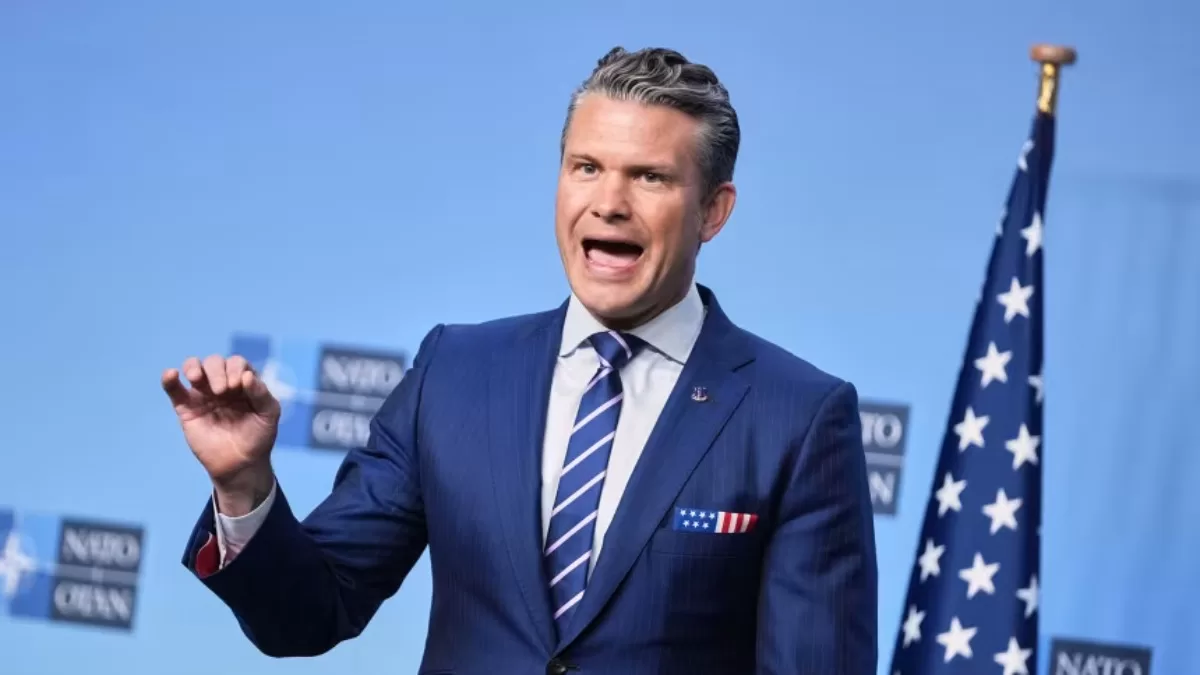Pentagon Secretary Pete Hegseth called on allies to increase investment in weapons for Ukraine and warned that if Russia's war against Ukraine does not end, the US and NATO will "impose an additional price on Russia for its continued aggression," CNN reports.
Speaking at a meeting of the Contact Group on Ukraine's Defense at NATO Headquarters, Høgseth emphasized that "firepower is coming" thanks to European countries purchasing American weapons, though whether this will include Tomahawk cruise missiles remains unclear. He called on states to increase their contributions to the Prioritized Ukraine Requirements List (PURL) initiative. The program currently promises $2 billion in weapons for Ukraine—less than the $3.5 billion President Volodymyr Zelenskyy had hoped for by October. "Turn words into action through PURL investments. No stowaways," he said.
NATO Secretary General Mark Rutte announced that more than half of the Alliance's members have already joined PURL and declared that these "commitments" will soon turn into "opportunities" for Ukraine. Following the announcement of the new contribution, Swedish Defense Minister Pál Jonsson declared "much greater alignment" between the US and European positions on aid to Kyiv: "Putin is not interested in negotiations and will not sit down at the table without greater pressure. The path to peace is through sanctions against the Russian economy and the supply of more weapons to Ukraine."
Ukrainian Defense Minister Denys Shmyhal thanked the countries that pledged new contributions and joined PURL, emphasizing the need for "decisive action to increase pressure on Russia and force it to end the war." Ukraine remains heavily dependent on American weapons as Russia enters its fourth year of full-scale invasion.
Kyiv is seeking to enable European countries to purchase long-range Tomahawk missiles for Ukraine under the PURL agreement, but the decision rests with US President Donald Trump. Trump stated that Volodymyr Zelenskyy will "make the case for going on the offensive" during his upcoming visit to the White House and promised to make a decision: "They want to go on the offensive… I will make a decision on that." He had previously not ruled out the transfer of Tomahawks amid "fatigue" with Vladimir Putin's position.
Russian Foreign Minister Sergey Lavrov warned that the Tomahawk delivery would "cause colossal damage" to relations between Moscow and Washington and would constitute a "serious escalation." The missile issue was not discussed in Brussels: "This is a bilateral issue," Rutte noted, referring to direct dialogue between Kyiv and the United States.
NATO defense ministers have already promised Ukraine more drones: the UK 100,000, and the Netherlands €90 million for domestic production. In the wake of recent incidents involving violations of NATO airspace—including the downing of suspicious Russian drones over Poland—London will continue flying its aircraft over Polish skies until the end of the year. "If NATO is under threat, we will act. We must respond to Putin's escalation with force," said British Defense Secretary John Gilley, calling the incidents "reckless and unacceptable."
Dutch Defense Minister Ruben Brekelmans added that Europe needs more effective interception capabilities than fighter jets: "Our F-35s shot down several Shaheds in Poland… but that's not the most effective way to combat drones." Latvian Defense Minister Andris Spryds emphasized the importance of deep strike capabilities inside Russian territory as a deterrent for Ukraine: "Don't hit us—because we can hit back."
Even after the war ends, Russia will pose a risk to Europe, warned Finnish Defense Minister Antti Hakkanen, pointing to the modernization of the Russian army and the buildup of troops "on our borders."
